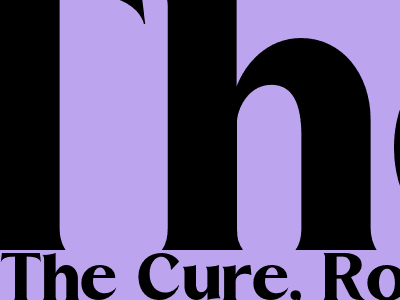
Robert Smith and the Cure - A Lasting Legacy
Introduction
Robert Smith, the enigmatic frontman of The Cure, has been captivating audiences for decades with his unique style, haunting lyrics, and timeless melodies. From their humble beginnings in the late 1970s, The Cure have evolved into one of the most influential and enduring bands in alternative rock.
The Early Years
The Cure formed in 1976 in Crawley, England, with Smith as the lead singer, guitarist, and primary songwriter. The band's early sound was characterized by its dark, brooding atmosphere and Smith's distinctive vocals. Their debut album, "Three Imaginary Boys" (1979), established their reputation as pioneers of the goth rock genre.
Commercial Breakthrough
The Cure's commercial breakthrough came with the release of "Seventeen Seconds" (1980). The album featured a more polished and accessible sound, while retaining the band's signature melancholy. The single "A Forest" became a global hit, propelling The Cure into the mainstream.
The Glory Years
The 1980s marked the height of The Cure's popularity. Albums like "Faith" (1981), "Pornography" (1982), and "The Head on the Door" (1985) showcased Smith's lyrical prowess and the band's musical versatility. They achieved critical and commercial success, and their music became synonymous with the alternative rock movement.
Disintegration and Beyond
The Cure's most ambitious and celebrated album, "Disintegration" (1989), marked a shift in the band's sound. The album featured lush arrangements, soaring melodies, and deeply personal lyrics. It cemented The Cure's legacy as one of the most influential bands of their generation.
In the years that followed, The Cure continued to explore different musical directions. Albums like "Wish" (1992), "Wild Mood Swings" (1996), and "Bloodflowers" (2000) further showcased their range and depth. They have consistently released critically acclaimed albums and toured extensively.
Smith's Musical Genius
Robert Smith is widely regarded as one of the most talented and innovative songwriters in rock music. His lyrics are often introspective and poetic, exploring themes of love, loss, and the human condition. His unique vocal style, characterized by its ethereal quality and melancholic delivery, has become synonymous with The Cure.
Musical Influences
Smith's musical influences are diverse, ranging from 1960s psychedelic rock to European art rock. He has cited bands like The Doors, The Velvet Underground, and Siouxsie and the Banshees as inspirations. His music has in turn influenced countless other artists, including Coldplay, Radiohead, and Interpol.
Legacy and Impact
The Cure have had a profound impact on popular culture. Their music has inspired countless artists, and their aesthetic has become synonymous with the goth subculture. They have been inducted into the Rock and Roll Hall of Fame and received numerous awards for their contributions to music.
Robert Smith and The Cure continue to tour and release new music, captivating audiences with their timeless artistry. Their unique blend of darkness and beauty has left an enduring legacy that will continue to inspire generations to come.
Conclusion
Robert Smith and The Cure have been at the forefront of alternative rock for over four decades. Their music has touched the lives of millions, and their legacy will forever be etched in the annals of music history. From the haunting melodies of their early years to the soaring grandeur of their later albums, The Cure have consistently defied expectations and created music that resonates with the human soul.